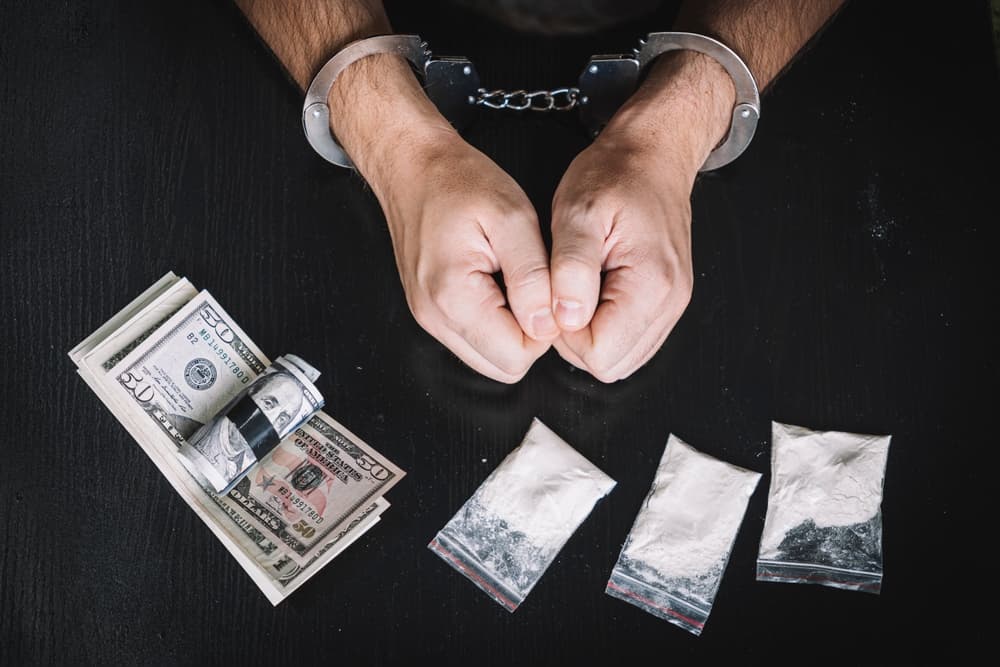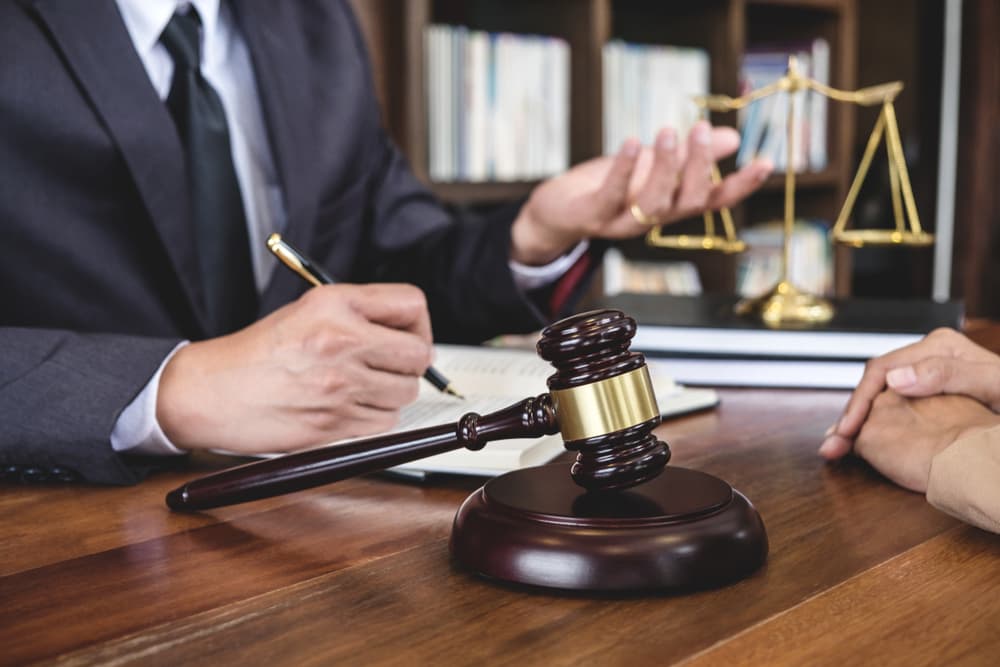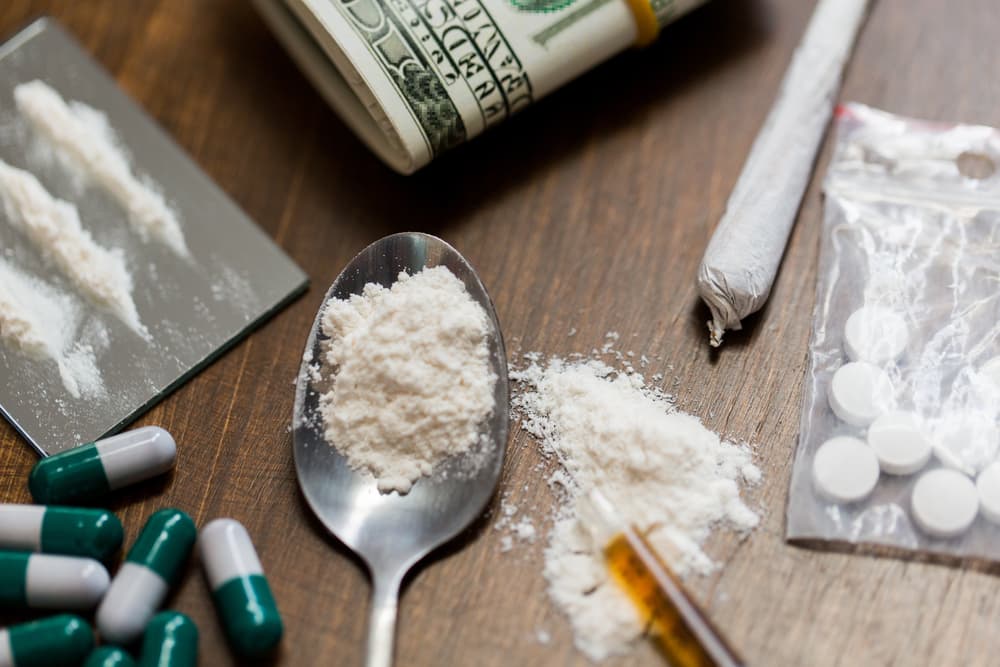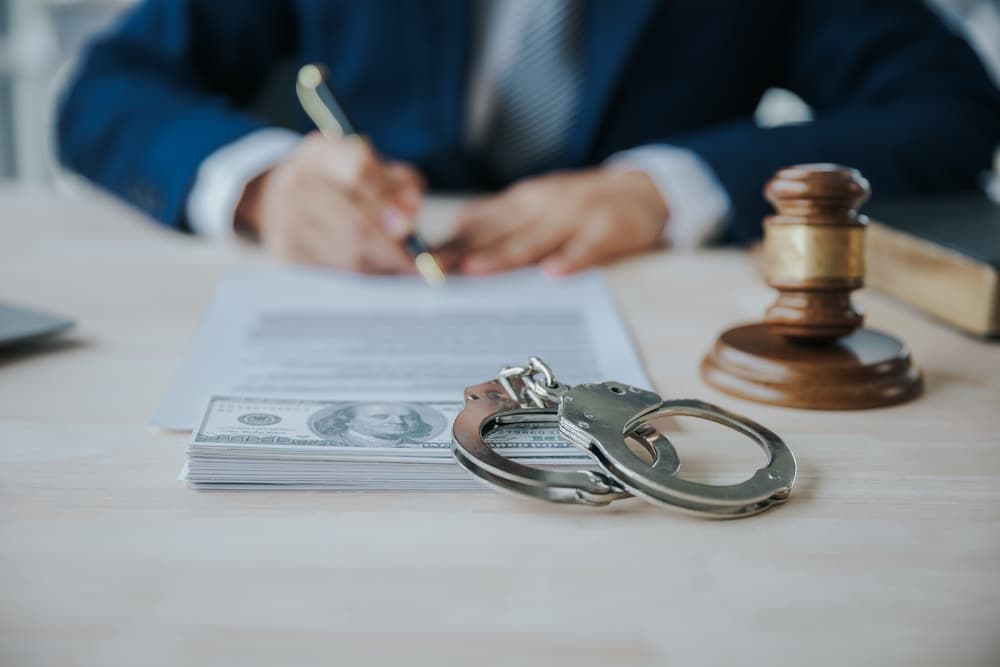
Your actions following an arrest for a drug crime in Austin can significantly affect your case’s outcome. A lawyer can provide essential information on what to do immediately after being arrested for a drug crime in Austin. Make consulting an Austin drug defense lawyer one of your top priorities during this challenging time.
Understanding Your Rights After Police Arrest You for a Drug Crime in Austin
After police arrest you for a drug crime in Austin, you need a lawyer to explain your rights. The United States Constitution protects these rights, which ensure fair treatment under the law. The most relevant constitutional amendments in this situation are the Fourth, Fifth, and Sixth Amendments.
The Fourth Amendment protects you from unreasonable searches and seizures. This means law enforcement officers must have probable cause or a warrant to search you or your property. If you think someone has infringed on your Fourth Amendment rights, an Austin criminal defense lawyer can challenge the legality of the search and potentially get the court to throw out the evidence.
The Fifth Amendment gives several protections, including the right to remain silent and the right against self-incrimination. This Amendment is the basis for the famous Miranda rights you’ve likely heard about on television. We’ll dive deeper into Miranda rights later.
The Sixth Amendment guarantees your right to legal counsel. This means you have the right to have an attorney present during questioning and to have an attorney represent you in court. This is why you must request an Austin criminal defense lawyer as soon as possible after your arrest.
The Importance of Miranda Rights

Law enforcement officers must inform you of Miranda rights on arrest. These rights stem from a landmark Supreme Court case, Miranda v. Arizona, and protect your Fifth Amendment right against self-incrimination.
When the police arrest you, they should inform you of:
- You have the right to remain silent.
- Anything you say can and will be used against you in court.
- You have the right to an attorney.
- If you cannot afford an attorney, one will be appointed for you.
These rights are not just a formality. They are powerful protections that you should take advantage of. Many people think they can talk their way out of trouble, but this often leads to self-incrimination. An Austin criminal defense lawyer will advise you to exercise your right to remain silent and to request legal counsel immediately.
If the police fail to read you your Miranda rights, it doesn’t automatically mean the court will drop your case. However, the court might not admit your statements after your arrest. This is another reason why you need an experienced Austin criminal defense lawyer who can identify any procedural errors that might benefit you.
Exercising Your Right to Remain Silent
One of the most important things you can do immediately after an arrest for a drug crime in Austin is to exercise your right to remain silent. The Fifth Amendment guarantees this crucial protection against self-incrimination.
When police arrest you, you may feel pressured to explain yourself or convince the police that you’re innocent. However, resist this urge. Anything you say can work against you in court.
Rather, inform the police that you are using your right to remain silent and wish to speak with a lawyer. You can say, “I’m choosing to exercise my right to remain silent. I would like to speak with an attorney.” After this, remain silent. Don’t engage in small talk or answer questions, no matter how harmless they seem.
Remember, exercising your right to remain silent cannot be used against you in court. It’s not an admission of guilt; it’s a constitutional right. An Austin criminal defense lawyer will strongly advise you to remain silent until you’ve had the opportunity to consult with legal counsel.
Requesting an Attorney

After exercising your right to remain silent, your next step should be to request an attorney. This is a right guaranteed by the Sixth Amendment. It’s one of the most important steps you can take to protect yourself after being arrested for a drug crime in Austin.
When you request an attorney, the police must stop questioning you until your attorney appears. This protection prevents law enforcement from pressuring you into making incriminating statements.
To request an attorney, you can simply say, “I want to speak with an attorney.” Be unambiguous in your request. Once you’ve made this request, the police should cease all questioning. If they continue to ask you questions, repeat your request for an attorney and continue to exercise your right to remain silent.
It’s important to note that you have the right to an attorney even if you can’t afford one. If you can’t afford to hire a private attorney, the court will appoint a public defender to represent you. While public defenders are often overworked, they are licensed attorneys who can provide valuable legal assistance.
However, hiring a private Austin criminal defense lawyer can help if you have the means. A private attorney often has time and resources to dedicate to your case and can offer personalized attention. They may provide a thorough investigation, tailor strategies to your situation, and negotiate more effectively. You may need this focused to navigate complex legal issues and achieve a favorable outcome.
The Booking Process
After the police arrest you and you exercise your right to remain silent and request an attorney, you’ll go through a booking process. During this administrative procedure, the police record information about you and the alleged crime.
During booking, the police will typically:
- Take your personal information (name, date of birth, address)
- Take your fingerprints and photograph
- Search for your person and possessions
- Check for any outstanding warrants
- Place your personal property in safekeeping
- Inform you of the charges against you
If booking staff ask you to sign any documents, read them carefully. If you don’t understand something, politely ask for clarification. However, avoid signing anything until you consult an Austin criminal defense lawyer, as they can guide the documents’ implications and protect your rights.
Understanding the Charges Against You

Drug crimes in Austin can vary widely in their severity and potential consequences. The specific charges you face will depend on the type and amount of drug involved, accusations of possession, distribution, or manufacturing, and whether you have any prior convictions.
In Texas, drug crimes fall under the Texas Controlled Substances Act. This act divides controlled substances into penalty groups, with different punishments associated with each group.
For example, possession of a small amount of marijuana might result in a misdemeanor, while possession of a larger amount of cocaine can result in a felony.
An Austin criminal defense lawyer will understand the exact charges against you and their potential consequences. They can explain the charges in detail, clarify your potential penalties, and begin building a defense strategy tailored to your situation.
The Importance of Bail
After the police arrest and book you, the next step is usually a bail hearing. Bail is money set by the court that you can pay to secure release from jail while your case is pending. Bail ensures that you’ll show up for future court dates.
The amount of bail set will depend on the severity of the charges, your criminal history, your ties to the community, and whether the court considers you a flight risk. In some cases, the court might release you on your recognizance, which means you avoid paying bail by promising to appear in court.
If the court sets bail and you cannot afford it, you have a few options. You can request a bail reduction hearing, where your attorney can argue for a lower bail amount. Alternatively, you can work with a bail bondsman, who will post bail for you in exchange for a fee.
An Austin criminal defense lawyer can help during this process. They can argue for a lower bail amount or your release on your recognizance. They can also clarify your options if you can’t afford bail and guide you through working with a bail bondsman if necessary.
Preparing for Your First Court Appearance
Your first court appearance after being arrested for a drug crime in Austin is typically called an arraignment. This brief hearing will inform you of the charges and ask you to enter a plea (usually guilty, not guilty, or no contest).
Having an Austin criminal defense lawyer represent you at your arraignment is advised. They can protect your rights and advise you on how to plead.
Your attorney might also use the arraignment to argue for your release or request a bail reduction if you’re still in custody. They can also start requesting discovery, which means obtaining the evidence that the prosecution has against you.
Remember, the arraignment is just the beginning of the legal process. It’s not the time to try to explain your side of the story or argue your case. Let your attorney handle the talking, and continue to exercise your right to remain silent.
Building Your Defense

After your arraignment, your Austin criminal defense lawyer will start building your defense.
This process involves several steps:
- Reviewing the Evidence: Your attorney will carefully examine all the evidence the prosecution has against you. This might include police reports, witness statements, physical evidence, and any statements you may have made.
- Investigating the Arrest: Your lawyer will investigate the circumstances of your arrest to ensure that officials uphold your constitutional rights. If the police conducted an illegal search or failed to read you your Miranda rights, your attorney can ask the court to throw out certain evidence.
- Identifying Weaknesses in the Prosecution’s Case: An experienced attorney will look for any holes or inconsistencies in the prosecution’s case. This can involve questioning the reliability of witnesses, challenging the accuracy of drug tests, or disputing the chain of custody for physical evidence.
- Exploring Possible Defenses: Depending on the specifics of your case, there might be several possible defenses. For example, you might argue that the drugs didn’t belong to you, that you didn’t know about their presence, or that law enforcement entrapped you.
- Negotiating With the Prosecutor: In many cases, your attorney will attempt to negotiate with the prosecutor for a plea deal. This might involve pleading guilty to a lesser charge in exchange for a more lenient sentence.
Throughout this process, maintain open communication with your Austin criminal defense lawyer. Speak honestly about the circumstances of your arrest and any prior criminal history. The more information your attorney has, the better they can defend you.
Reach Out to a Qualified Austin Criminal Defense Lawyer Today
An arrest for a drug crime in Austin is a serious matter, but it doesn’t have to define your future. With the right legal representation and a proactive approach, you can work to minimize the impact of this event on your life and seek a favorable resolution. An experienced Austin criminal defense lawyer can protect your rights, navigate the complex legal system, and work tirelessly to secure the best possible outcome for your case, from negotiating reduced charges to challenging evidence.
Don’t face this situation alone. Call a qualified Austin criminal defense lawyer today if the arrest involves a drug crime. Your future may depend on the actions you take now. During this challenging time, you can address this challenge head-on with the right legal support and work toward a more positive future.
